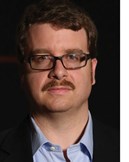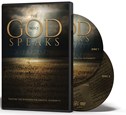Jeff Chamblee
AFA Studios director
May 2018 – There is a new religious group on the rise in America – the “Nones.” While most religions are marked by a clear list of beliefs and behaviors, Nones pride themselves on avoiding easy categories and labels. While most religious groups gather together in places of worship, Nones are decentralized, individualistic, and non-practicing. This is the new religion of the Nones.
Between 2007 and 2014, Pew Research found that the total number of Americans who identified as “religiously unaffiliated” grew from 36.6 million to 55.8 million.1 They are the Nones.
That startling number makes Nones the second largest religious affiliation in the U.S., behind some 62 million adults who identified as Evangelical Protestants.2 Alarmingly, the None categorization is becoming more and more popular among the Millennial generation and younger, most of whom acknowledge growing up in a religious household.
Despite their claim to no religious affiliation, M.D. Perkins says Nones have all the marks of a traditional religious identity. Perkins is a filmmaker with American Family Studios and director of AFA’s newest documentary, The God Who Speaks.
“Nones would hate to be categorized as religious,” Perkins said. “But when I’m hearing a common worldview, a shared sense of morality, and similar means of applying that morality culturally, I really don’t know what else to call it. You may be religiously non-religious, but you still hold religious convictions.”
 A 35-year old Tupelo, Mississippi, native, Perkins (photo, left) grew up in the evangelical church and has noticed how many of the people he grew up with in Sunday school and youth group have gone on to leave the church. “Sadly, I would say about 80-90% of my youth group is non-practicing now, 15 or 20 years later. They may not all call themselves Nones but, practically speaking, they have no love for Christ or His Word and usually have a list of grievances that keep them from wanting to be involved in a church. Most haven’t embraced atheism or any other religion, but they aren’t really Christians either.”
A 35-year old Tupelo, Mississippi, native, Perkins (photo, left) grew up in the evangelical church and has noticed how many of the people he grew up with in Sunday school and youth group have gone on to leave the church. “Sadly, I would say about 80-90% of my youth group is non-practicing now, 15 or 20 years later. They may not all call themselves Nones but, practically speaking, they have no love for Christ or His Word and usually have a list of grievances that keep them from wanting to be involved in a church. Most haven’t embraced atheism or any other religion, but they aren’t really Christians either.”
Perkins is burdened by the rejection of Christianity by many of his peers. “It’s part of why The God Who Speaks needed to be made,” he said. “I was hearing a common list of objections to the Bible, and they were all objections that I knew had compelling answers.”
AFA began researching and planning the project in 2015. Then came filming the 23 Bible scholars who make up the impressive list of contributors to the project – names like Josh McDowell, Alistair Begg, Erwin Lutzer, and the late R.C. Sproul.
Perkins answered the following questions for AFA Journal.
AFA Journal: Was TGWS made specifically to deal with the rise of the Nones?
M.D. Perkins: Not specifically, though I hope that’s a side effect. The film was made to help the church understand, discuss, and defend the Bible in an increasingly secular culture. It was only in the process of making the documentary that I realized how many conversations the project generated among my peers – most of whom I would describe as Nones.
AFAJ: What was their response?
MDP: Plenty of people rolled their eyes when I told them what I was working on. But for some, I found that talking about the project really got them thinking. I was absolutely convinced of my position, and I was able to give legitimate reasons why I believed it. I think the fact that I had compelling answers to the common skeptical objections to the Bible shocked them.
AFAJ: What are some of the ways people object?
MDP: I’ve heard many: How can we trust the wording of the Bible when it was copied by hand for centuries? The Bible is a purely human book. The Bible is full of errors and inconsistencies. Miracles can’t happen and were just a way of explaining what ancient people couldn’t explain otherwise. The books of the Bible were chosen by a group of people who had a theological agenda for not including equally important books like the Gospel of Thomas or Judas.
So many of those are naturalistic objections that assume there is no supernatural involvement in the origin or preservation of God’s Word.
AFAJ: How do you define naturalism? How is it counter to a Christian worldview?
MDP: Naturalism is a worldview that rejects supernatural activity, believing instead that the world is explainable by natural processes. That view is obviously counter to Christianity, since God is a supernatural being and all of His involvement in human history would be considered supernatural involvement.
The divinity of Christ, the atonement at the cross, the bodily resurrection of Jesus, the inspiration of Scripture, the regeneration of the sinner by the work of the Holy Spirit – all of those are supernatural; they are not explainable by natural processes and phenomena. They are also all fundamental to Christianity. If you lose them, you lose Christianity by redefining it.
AFAJ: Why is it becoming more common to be identified as a None?
MDP: There’s a combination of reasons. Naturalism is the default worldview of the culture, and it is the view most commonly taught in schools and universities. Because of that, many people are embarrassed by the faith. Sadly, many from Christian backgrounds were given shallow answers to some of these questions or, in some cases, were discouraged from asking questions altogether.
That gives the impression that Christianity is inauthentic or has something to hide to keep people believing. The Bible is clear that there are always spiritual reasons underneath someone’s intellectual rejection of the faith, but we should be mindful to give good answers to those who ask because compelling answers are out there.
AFAJ: What do you hope Nones will gain from watching TGWS?
MDP: Understand that AFA made the documentary primarily for an evangelical audience, so we don’t deal with every single objection a skeptic might have. That being said, The God Who Speaks lays out what Christians believe – and have believed – about the Bible for centuries. There is compelling evidence for these positions, and we attempted to show that. You can dismiss or ignore the evidence, but the evidence is there nonetheless.
AFAJ: What value will Christians find in TGWS?
MDP: I hope Christians will discover more reasons to be confident in the authority of the Bible. I also hope Christians will be compelled to talk with their children, friends, and co-workers about the Bible in a way that is not shallow or sentimentalized.
We’ve all heard the slogan, “God said it. I believe it. That settles it.”
God did say it. I do believe it. And it is settled because God’s Word is authoritative.
However, that kind of statement doesn’t really help us engage someone or point others to the beauty and intricacy of God’s providence in giving us the Bible. There may be more that needs to be said when someone asks us why we can trust the Bible or why the Bible is true. Bumper sticker slogans are great to show our identification with a cause, but they aren’t great for helping someone with questions understand the truth. The God Who Speaks can help us voice the answers. 
1 pewresearch.org, 5/13/15
2 pewforum.org, 5/12/15
___________________
 The God Who Speaks received top honors in the documentary category at the 2018 Christian Worldview Film Festival in March. (See details here.)
The God Who Speaks received top honors in the documentary category at the 2018 Christian Worldview Film Festival in March. (See details here.)
 Available at afastore.net
Available at afastore.net